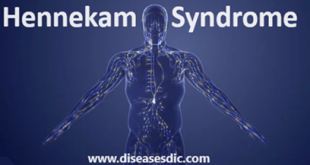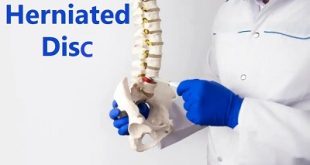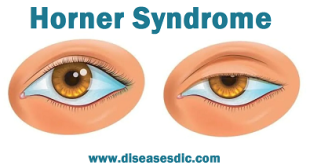Introduction
Hypocobalaminemia or Vitamin B12 deficiency, as the name indicates, it is a condition characterized by a lack of the water soluble vitamin known as B12. A deficiency of this vitamin, which is vital for physical processes, increases the risk of heart attack and can damage the nerve cells apart from giving rise to a host of other problems.
What is vitamin B12?
Also referred to as Cobalamin, it is an important vitamin that is necessary for a number of vital functions of the body. Along with the B vitamin folate, it helps create the genetic material of the human body. It helps maintain the levels of the amino acid known as homocysteine – which is supposed to reduce the risk of heart attacks. It is also important for the manufacture of red blood cells or RBCs which transport oxygen to various tissues of the body through blood.
History
Vitamin B12 was discovered in 1926 by Georg Richard Minot and William Parry Murphy, who found that eating large quantities of liver restored red blood cells in patients with pernicious anemia (the inability to make enough red blood cells). In 1934, both scientists, as well as George Whipple, won a Nobel Prize for their work in treatment of pernicious anemia. Vitamin B12 wasn’t officially isolated until 1948.
Epidemiology
The prevalence of vitamin B-12 deficiency is difficult to ascertain because of diverse etiologies and different assays (i.e., radio assay or chemiluminescence). Affected individuals may number 300,000 to 3 million in the United States.
PA prevalence may be higher in white people and lower in Hispanic and black people. No known relationship exists between neurologic symptoms and race. Studies in Africa and the United States have shown higher vitamin B-12 and transcobalamin II levels in black than in white individuals. Additionally, blacks have lower HC levels and metabolize it more efficiently than whites.
In Europe and Africa, the prevalence of PA is higher in elderly women than men (1.5:1), while in the United States no differences exist. Men have higher HC levels at all ages. Pregnancy and estrogen replacement in postmenopausal women lower HC levels.
PA occurs in people of all ages, but it is more common in people older than 40-70 years and, in particular, in people older than 65 years. In white people, the mean age of onset is 60; in black people, the mean age is 50 years. Congenital PA manifests in children aged 9 months to 10 years; the mean age is 2 years.
Common causes of vitamin B12 deficiency
Impaired gastric absorption
- Pernicious anaemia
- Gastrectomy—partial or total
- Zollinger-Ellison syndrome
Impaired intestinal absorption
- Ileal resection or disease—for example, Crohn’s inflammatory bowel disease and tuberculous ileitis
- Blind loop syndrome
- Luminal disturbances: chronic pancreatic disease and gastrinoma
- Parasites: giardiasis, bacterial overgrowth, and fish tapeworm
Pancreatic insufficiency
Decreased intake
- Malnutrition
- Reduced intake of animal products
- Strict vegan diet
Congenital/inherited
- Intrinsic factor receptor deficiency/defect—ImerslundGräsback syndrome
- Congenital deficiency of intrinsic factor—“juvenile” pernicious anaemia
- Cobalamin mutation (C-G-1 gene)
- Transcobalamin deficiency
Increased requirements
- Haemolysis
- HIV
Drugs
- Alcohol
- Nitrous oxide
- Proton pump inhibitors
- H2 receptor antagonists
- Metformin
- Colchicine
- Slow K (potassium chloride) preparations
- Cholestyramine
Risk factors of Hypocobalaminemia
A number of factors can affect your body’s vitamin stores. In general, your risk of vitamin deficiency is increased if:
- Your diet contains little to no natural vitamin food sources, such as meat, dairy, fruits and vegetables. Vegetarians who don’t eat dairy products and vegans, who don’t eat any foods from animals, may fall into this category. Consistently overcooking your food also can cause vitamin deficiency.
- You’re pregnant, and you aren’t taking a multivitamin. Folic acid supplements are especially important during pregnancy.
- You have intestinal problems or other medical conditions that interfere with absorption of vitamins. Abnormal bacterial growth in your stomach or surgery to your intestines or stomach can interfere with the absorption of vitamin B-12.
- You abuse alcohol. Alcohol interferes with the absorption of folate and vitamin C, as well as other vitamins.
- You take certain prescription medications that can block absorption of vitamins. Anti-seizure drugs can block the absorption of folate. Antacids and some drugs used to treat type 2 diabetes may interfere with B-12 absorption.
Some risk factors are unique to specific vitamin deficiencies.
Folate-deficiency anemia risk factors include:
- Undergoing hemodialysis for kidney failure. Ask your doctor whether you need supplemental folic acid to prevent a deficiency.
- Cancer treatment. Some drugs used to treat cancer can interfere with the metabolism of folate.
Risk factors for Hypocobalaminemia include:
- A family history of the disease
- Having part or all of your stomach or intestine removed
- Autoimmune diseases, including type 1 diabetes
- Crohn’s disease
- HIV
- Some medicines
- Strict vegetarian diets
- Being an older adult
Signs and symptoms
Hypocobalaminemia should be suspected in the following circumstances and warrants further investigation:
- Unexplained anaemia
- Unexplained neurological or psychiatric features
- Gastrointestinal problems such as sore tongue, anorexia, diarrhoea
- Prolonged use of certain medications
The consequences of clinically important decreases in vitamin B12, such as macrocytic anaemia, neuropathy and mental changes, can be profound. Specific signs and symptoms of Hypocobalaminemia include:
- Neurologic – difficulty walking, loss of vibratory sense, impaired sense of touch, peripheral neuropathy
- Psychiatric – irritability, personality changes, depression, psychosis, mild memory impairment
- Cardiovascular – possible increased risk of myocardial infarction and stroke, palpitations
- Anorexia, mild weight loss diarrhoea, atrophic glossitis
- Urologic – difficulty in urination
- Dyspnoea
- Vertigo
- Tinnitus
Hypocobalaminemia complications
Long-time sufferers of this condition tend to develop PA. PA sufferers have a higher risk of developing stomach cancers. If left without being treated, the disorder can result in acute neuropathies which include
- Optic neuropathy
- Encephalopathy
- Myelopathy
Long-term vitamin B12 deficiency can cause:
- Confusion
- Dementia
- Depression
- Loss of balance
- Numbness and tingling in your hands and feet
Those deficient in Vitamin B12 may also suffer from a lack of other important nutrients. In such cases, the condition may be complicated by the occurrence of a number of other nutritional disorders.
In some rare cases, patients suffer from side effects arising due to Vitamin B12 supplementation. Very rarely, affected individuals suffer from hypersensitivity which is characterized by problems like:
- Itching
- Inflammation
- Shock
Sometimes, extremely high doses may result in acne problems. Other rare side effects include:
- Cardiac arrhythmia
- Dizziness
- Hot flushes
- Nausea
- Skin rash
Hypocobalaminemia diagnosis
Doctors usually begin the diagnosis of this syndrome by asking patients about the symptoms that they have been experiencing. This is followed by a physical examination, in which physicians look for the following symptoms:
- Paleness or yellowness of skin
- Tachycardia, or abnormally fast heart rate
- Changes in the eyes
- Elevated body temperature
- Enlarged spleen (Splenomegaly)
Patients are likely to exhibit even more symptoms. Based on the severity of the disorder, they may also experience pinpricks and loss of temperature sensations. This may be followed by a number of tests, which include:
Blood tests
These exams reveal a deficiency in the level of B12 vitamin in blood. A lack of this component, and the presence of clinical symptoms of the disorder, confirm the diagnosis. Complete Blood Count (CBC) may indicate the presence of anemia.
Schilling test
In this method, a sufferer is administered with B12 in an injected or tablet form to assess whether it is being properly absorbed by the body.
Bone marrow test
In some cases, this exam may be carried out to diagnose the condition by allowing microscopic examination of cells.
Metabolite assessment
If the levels of Vitamin B12 in blood are borderline, blood may be tested for metabolites such as Methylmalonic acid and Homocysteine. This can help either affirm or rule out the diagnosis of B12 deficiency.
Treatment of Hypocobalaminemia
Treatment involves raising your vitamin B12 levels and will vary based on the cause of your deficiency. Your doctor may recommend:
- Shots of vitamin B12 (monthly or more often, if needed)
- Vitamin B12 supplements, in pill form or as a nasal spray
- Treatment of underlying conditions, such as Crohn’s disease, celiac disease, or alcoholism
- Dietary changes
Treatment for this condition involves replacing the missing vitamin B12. People who cannot absorb B12 need regular injections.
When injections first are administered, a patient with severe symptoms may receive five to seven during the first week to restore the body’s reserves of this nutrient.
A response usually is seen within 48 to 72 hours, with brisk production of new red blood cells. Once B12 reserves reach normal levels, injections of vitamin B12 will be needed every one to three months to prevent symptoms from returning.
People who cannot absorb vitamin B12 should continue to eat a well-balanced diet that provides other nutrients (folic acid, iron and vitamin C) necessary to produce healthy blood cells.
Sometimes people can take high doses of oral B12 to provide replacement instead of undergoing injections, but a physician should closely supervise this.
In people whose vitamin B12 deficiency is related to overgrowth of intestinal bacteria, treatment with oral antibiotics, such as tetracycline (sold under several brand names), may stop bacterial overgrowth and allow the absorption of vitamin B12 to return to normal.
Vitamin B12 deficiency resulting from inadequate dietary intake is the easiest to treat. The condition can be reversed by taking oral vitamin B12 supplements and adding foods containing B12.
When the anemia is severe and the red blood cell count is extremely low, blood transfusions may be necessary for the first couple of days until the vitamin B12 injections begin working.
Prevention of Hypocobalaminemia
- Strict vegetarians are at higher risk of developing B12 deficiency because of low intake of animal-source foods.
- Thus, it is necessary to use plant sources of vitamin B12 to prevent vegetarians from developing a deficiency. These include soybeans, mushrooms and B12 fortified foods such as cereals.
- Routine monitoring of vitamin B12 levels should be considered in people prescribed regular proton pump inhibitors and metformin.
- Higher consumption of the following foods can help a majority of people avoid this condition:
- Milk
- Eggs
- Seafood
- Cheese
- Poultry
- Meat
- If you do not consume animal products or suffer from a medical condition that prevents proper absorption of nutrients in your body, you are recommended to eat breakfast cereal containing B12 or have a B12-fortified multivitamin.
- The amount of Vitamin B12 needed by a person depends on his or her age and gender. Other factors, such as pregnancy and ailments, are also essential to consider. Women who are in a stage of maternity or are breast-feeding their children, require higher amounts of the vitamin.
- If you suspect yourself to be exhibiting the symptoms of Vitamin B12 Deficiency, consult a doctor to get your blood tested for this condition. If you test positive, seek treatment on an immediate basis to attain quick recovery. The faster you seek treatment, the quicker you can recover from this disorder.
 Diseases Treatments Dictionary This is complete solution to read all diseases treatments Which covers Prevention, Causes, Symptoms, Medical Terms, Drugs, Prescription, Natural Remedies with cures and Treatments. Most of the common diseases were listed in names, split with categories.
Diseases Treatments Dictionary This is complete solution to read all diseases treatments Which covers Prevention, Causes, Symptoms, Medical Terms, Drugs, Prescription, Natural Remedies with cures and Treatments. Most of the common diseases were listed in names, split with categories.








Kindly include treatments with brand names and also flowsheets for the management of diseases
Thank you for your precious feedback. We will process it soon.
I do really love this app. It is very organize ang informative. But I suggest that, those drug treatments that will use should usually administer to pt with each conditon. and drugs will improve its content. such as has a brand name and generic name. thankyou so much. keep this app up. ☺
Very informative, in detailed. Also can add brand names for mnc company.
sir..i have headache and mussle jumping problem..what can i do now?plz help me..
Please consult with specialist to avoid more effects of hypocobalaminemia.
…the explanation is. quite informative and in detail.A shorter version of insufficient mecobalamin and deficiency risks highlighted.
I have the same problem, now I get the treatment. (sore tongue )
Hi,
I am confused as to why there is not more information on High levels of B-12 in the blood. I also do not take B-12 supplements. So this is concerning to me. However, I cant seem to get my Doctor to address my concern of my B-12 level is now over 1900
I have not felt well for months. I have all the symptoms of low B-12 and seem to be getting worse. I recently am now having severe blurred vision and confusion. My family PA has done nothing to address this. Can you please recommend who I should ask to be referred to so that this can be looked into further.
Please consult a doctor to get rid of this problem.